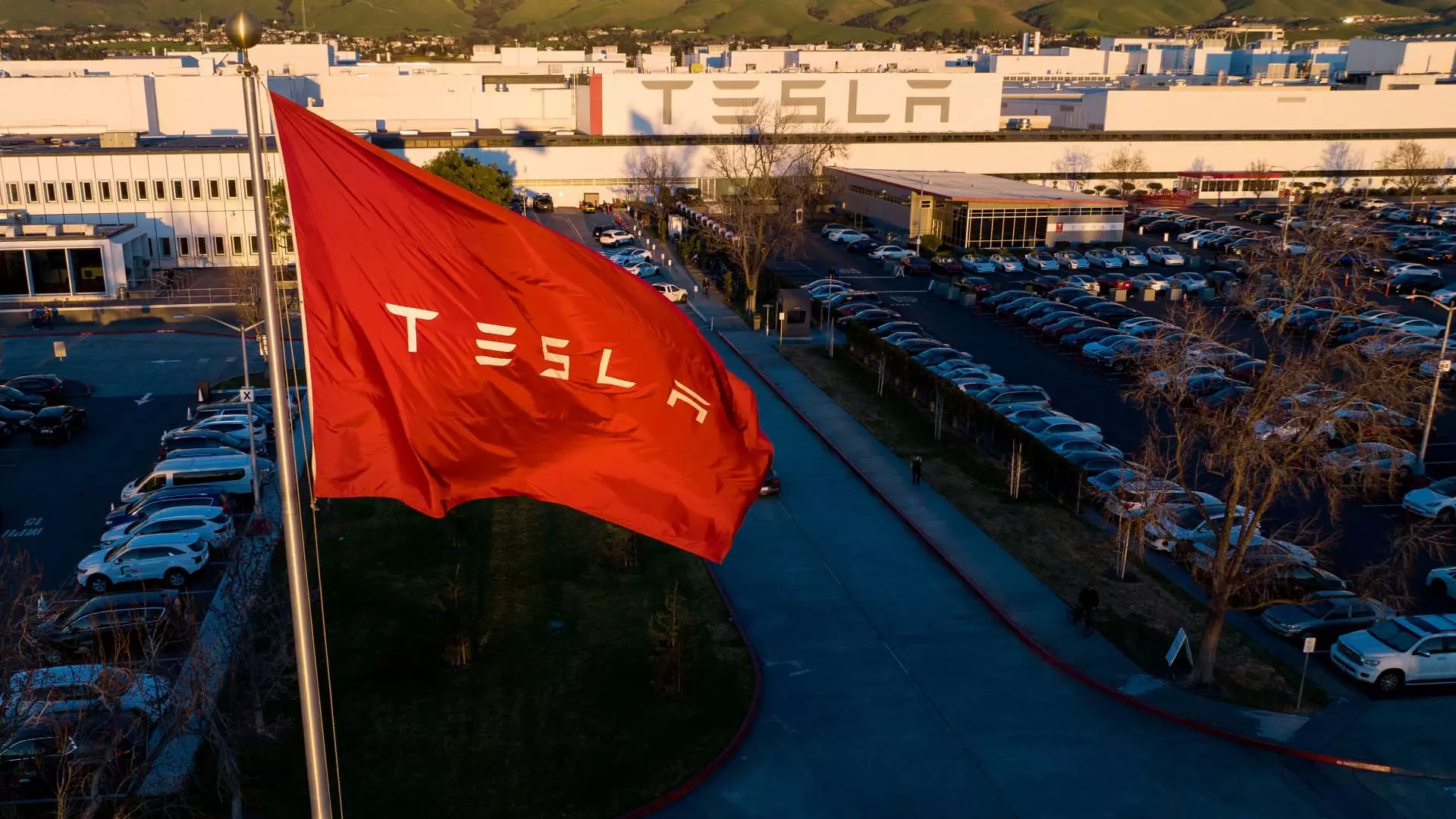Tesla, the electric vehicle giant led by Elon Musk, is implementing pay increases labeled as “market adjustment” for its factory workers in the United States. While the specifics of the pay raise have not been disclosed, the move comes amid efforts by the United Auto Workers (UAW) to organize Tesla plants. This article examines the pay increases, the UAW’s role in advocating for unionization, Tesla’s history with unions, and the company’s recent challenges both in the US and Europe.
Tesla’s vehicle assembly plant in Fremont, California, released notices stating that pay increases would be implemented this month. The hourly rate increases were recently enacted at the facility, and a similar pay raise was announced for workers at the battery plant in Sparks, Nevada. While the exact amounts have not been disclosed, the Nevada increase represented approximately a 10% wage hike, excluding bonuses. These adjustments are in line with the convention followed by many other car companies like Toyota, Hyundai, and Volkswagen.
The UAW, a major labor union, has set its sights on organizing at least one Tesla plant, inspired by its successes with the “big three” Detroit automakers. To gauge interest and support, the UAW has been collecting names and signatures from Tesla workers through an online authorization card. Once the union secures around 70% of workers’ support at a factory, it can either seek recognition from the company or initiate a formal vote. The UAW aims to ensure that non-union autoworkers receive fair compensation and treatment comparable to their unionized counterparts.
Tesla and its CEO, Elon Musk, have been vocal about their opposition to unions. Musk has often expressed his disagreement with the idea of unionization, citing concerns about creating a hierarchical divide between workers. In the past, Tesla has faced legal issues related to labor laws. In one instance, Musk’s tweet stating that workers at the Fremont plant would lose stock options if they unionized was deemed an unlawful threat by a federal appeals court.
Tesla’s challenges with unions extend beyond the United States. In Europe, the company has faced strikes and boycotts orchestrated by at least 15 unions, joining forces with IF Metall, to push for a collective bargaining agreement that covers industrywide norms in Sweden. Furthermore, large pension funds in Scandinavia have urged Tesla to reconsider its approach to working with unions and collective agreements. These challenges highlight the need for Tesla to address workers’ concerns globally.
News of the pay increases and unionization efforts had an impact on Tesla’s stock price, causing it to close down 2.9% following the reports. Additionally, the automaker faced supply chain problems related to attacks in the Red Sea, leading to a temporary suspension of production in Germany. These challenges highlight the potential disruptions faced by Tesla as it strives to maintain its position as a leading electric vehicle manufacturer.
Tesla’s decision to implement “market adjustment” pay increases for its workers comes as the UAW seeks to organize at least one Tesla plant. While these raises are seen as positive, they are still criticized by the UAW for falling short of what the company can afford and what autoworkers are worth. Tesla’s dynamics with unions have been contentious, with Elon Musk expressing his disagreement with the idea of unions. However, the National Labor Relations Board has found Tesla to be in violation of labor laws, highlighting the need for the company to address workers’ concerns. The challenges faced by Tesla in Europe further underscore the importance of establishing fair labor practices globally. As Tesla continues to navigate these issues, its ability to balance employee well-being and business outcomes will play a crucial role in shaping its future.

